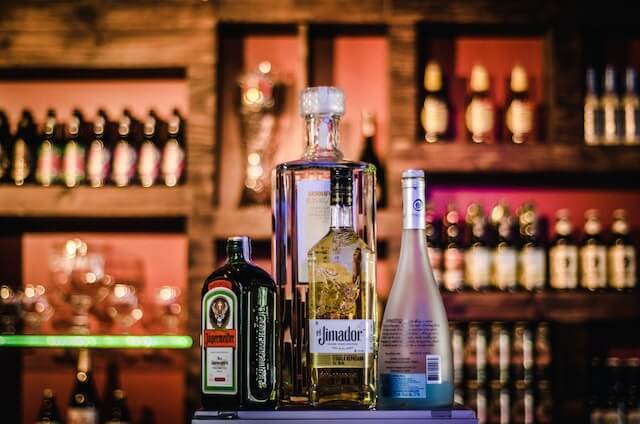Binge drinking in college can lead to many issues. From susceptibility to developing an alcohol use disorder to suffering from injuries and academic issues, party culture in college can get a grip on many young, unassuming students. This lifestyle of debauchery could drastically upend a student’s life if they are not careful. In this article, we will examine the causes and effects of underage binge drinking as well as the steps that need to be taken to prevent an alcohol use disorder.
What is Binge Drinking?
Many of the alcohol issues occurring on college campuses correlate with binge drinking. The NIAAA defines binge drinking as a pattern of drinking that brings your blood alcohol concentration (BAC) to 0.08% or 0.08 grams of alcohol per deciliter, sometimes higher. For your average adult, this translates to a pattern of consuming 5 or more drinks for males, and 4 or more drinks for females within a two-hour span.

Statistics of College Drinking
Upon entering college, many students might begin to consume alcohol as part of their social life. The problem is, too many of them drink in excess and face the risk of sustaining long-term harm. Young adults aged 18-24 who are in college are more likely to misuse alcohol, compared to their non-college peers. This stems from many varying factors which include increased social pressure to drink, less structured time, involvement in fraternities and sororities, and stress from academics, to name a few.
Here is a breakdown of some negative effects incited by binge drinking in college:
- Every year, 696,000 college students are assaulted by another student who has been drinking.
- One in four students report academic issues associated with over drinking, leading to lower grades across the board.
- About 599,000 college students receive unintentional injuries while under the influence of alcohol.
- Students who binge drank three times a week or more were five times more likely to miss class.
Even though many young adults are seeking out prevention efforts, the rates of binge drinking on college campuses has been about 40% for the last two decades. More work needs to be done to prevent the issue from being exacerbated even further.
Factors that Contribute to Binge Drinking in College
Some students may enter college with previous exposure to alcohol. But as mentioned earlier, certain aspects of college life can cause a potential dependence on alcohol. Students in their 4-year tenure are very vulnerable and at times naïve to their environmental influences. Academic expectations and social pressures often appear early on in freshman year. The factors in these environments are important to pay attention to. Anyone a part of Greek life or any athletic team will drink more than students at other types of schools. Alcohol consumption is higher for those in fraternities and sororities, with almost half of fraternity members reporting symptoms of alcohol use disorder by age 35.
Additional reasons for binge drinking in college can include:
- Familial struggles
- Loneliness or low self-esteem
- A desire to fit in
- Mental health issues including anxiety and depression
- A desire to gain confidence and shed insecurities
A majority of the college staff is aware of the dangers of alcohol misuse, but there are far too many irregularities when it comes to enforcing substance abuse laws. College presidents, alumni, and senior staff often turn a blind eye, as the assumption is that alcohol is an integral component of the college experience. But as we know, this level of leniency will continue to worsen the issue. A permissive environment could not only encourage binge drinking, but the student could come to believe that they need alcohol to function normally.
Getting Help for Binge Drinking
Intervention for alcohol use disorder is multifaceted. Individual tactics can be used to change student knowledge, attitudes, and behaviors associated with alcohol, so that they can drink less, take fewer risks, and experience fewer consequences. Some categories of individual intervention can include:
- Cognitive-behavioral skills-based approaches
- Motivation and feedback-related approaches
- Behavioral approaches used by health professionals
- Education and awareness programs
Treatment programs like what our team at Encore Outpatient Services’ provides will also help anyone who is dealing with a severe alcohol use disorder. We are a compassionate team of treatment professionals that offers several programs for helping patients navigate the recovery process. If you or a loved one are struggling with a substance use disorder, contact us today!
